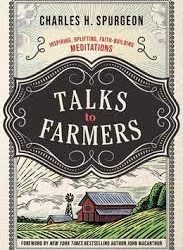“For no one ever hated his own flesh but nourishes and cares for it, just as Christ also the church” (Eph. 5:29)
No one ever hated his own flesh, but those who treat their wives hatefully do so without realizing it. The fool exalts himself over his wife, mocks her, demands service, and speaks in derogatory ways of her. Without realizing it, such fools are hating themselves. They demean their wives and suffer the consequences: highlighting the flaws of their wives only causes their wives to become less attractive as they grow more bitter, more discouraged, more frightened, and more suspicious. A one-flesh union with a bitter, discouraged, frightened, suspicious woman is hardly pleasant. Fools hate themselves. And wives of fools will have a difficult time respecting and submitting to husbands who treat them hatefully. When fools present their wives to themselves, they get what they have created for themselves: misery. Only by the abundance of God’s common grace do fools get any blessing from the the wives they have abused. They have hated themselves. They suffer for it.
Compare that to our True Husband:
Here is a paradox: by sacrificing himself Christ wins for himself a glorious church. Jesus gains what is desirable from an undesirable death. The very things that selfish people desire for themselves–good things that are desired inordinately and sinfully–are the things that Jesus gains by being unselfish. The very things that keep men from behaving in an unselfish way, from being concerned for the welfare of their wives first, are gained by Christ because he was unselfish. A selfish husband desires to be served and satisfied by a glorious wife. By unselfishly giving himself for his wife, Christ creates for himself just such a wife.
James M. Hamilton, Jr., “The Mystery of Marriage,” in For the Fame of God’s Name


0 Comments